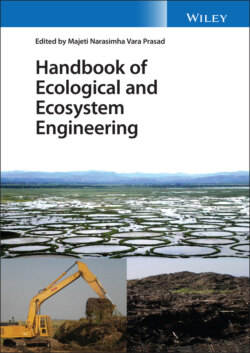Читать книгу Handbook of Ecological and Ecosystem Engineering - Группа авторов - Страница 17
1.4 Final Considerations: Challenges for the Future
ОглавлениеEcological engineering is a promising field of knowledge [72], as well as the only academic discipline capable of merging ecology and engineering based on the idea that ecological principles and management can be combined in all ecosystem types, from wildlands to cities, current ecosystems, and the analog ecosystems of the future [73]. Yet there are many challenges to be faced, such as those addressed by Jones [74]: ethical, relational, and intellectual.
The ethical challenge requires explaining the meaning of the statement that ecological engineering integrates human society with its natural environment to benefit both, which encompasses its practices [74]. This perspective must also contemplate the reasoning about, and the application of, ecosystem services, which are primarily anthropocentric. As expressed in this chapter, why not try a new concept of nature services, which also assesses the benefits of ecosystems for other ecosystems rather than just for humanity? This new concept would relate well to the aspirations proposed by ecological engineering since its origin – i.e. integrating humanity into its natural environment for reciprocal benefits.
The relational challenge refers to developing and strengthening relationships with other academic disciplines [74], ancestral knowledge, longings, and viewpoints of civil society. Environmental sciences, agriculture, engineering, and earth and social sciences are the primary scientific partners of ecological engineering today; however, it is possible to expand its dialogue with computer sciences, materials sciences, energy, chemistry, biochemistry, and countless others. On the other hand, companies and professionals in the business, education, and political fields are the primary social partners of ecological engineering, although partnerships with health sciences, philanthropic entities, and traditional communities can be easily added and expanded.
Ecological engineering was founded by intellectuals who had different viewpoints about ecosystems due to ecological and engineering perspectives deriving from their academic lineage. The intellectual approximation of perspectives about ecosystems to unify the key principles of this science in a way that is useful, coherent, understandable, and accessible to all is a challenge that requires significant efforts from the academic community [74].
Facing these challenges must be thought of in an integrated way; it requires the assumption of partnerships among professionals from different fields and fruitful dialogue with constituted powers, communities, and social actors. The task is arduous, but it can be implemented if every individual is willing to communicate and redefine their knowledge, based on their experience, to incorporate new perspectives and build a stronger knowledge base.
